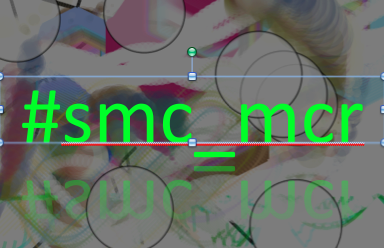 A topic that’s been floating around for a while is the ongoing debate about how social media and search engine optimisation can interact. To that end, regular social media caffeine-addict David Edmundson-Bird has proposed a debate: “This house believes that social media represents the end of search”.
A topic that’s been floating around for a while is the ongoing debate about how social media and search engine optimisation can interact. To that end, regular social media caffeine-addict David Edmundson-Bird has proposed a debate: “This house believes that social media represents the end of search”.
This is a prescient debate.
SEO has been built on the premise that, despite secretive protocols for ranking pages and the dominance of a single search engine superpower, content can be engineered to score highly in search results for the chosen keywords – while keeping it largely readable.
However, the emergence of user-generated content that is searchable, but where the results cannot be easily optimised, arguably represents a great challenge to the search engine optimisation industry. Now, we have masses of fresh content, often generated in real-time and linked to local, national or global events, which can be instantly indexed and queried for the thoughts of the human hive-mind.
And this content is eminently rich in context, in opinion, in thought and often in multimedia, notably with the rise of smartphones such as the iPhone. It represents a treasure trove of information valuable to marketers, such as opinions on brands, people, places – all the sort of thing you would want to access and to influence in order to promote your clients’ messages.
Until recently, applying well-understood search engine optimisation techniques was a key method for influencing that opinion. Getting your search results high up on Google – on the first page, in fact – was seen as key to put your business or messages on the map for users to click-through to. But influencing search engines can take time, is potentially expensive and very rarely instant.
Now, you can tweet, have that picked up by Tweetmeme, Mashable or Stephen Fry and find that you’ve generated hundreds of thousands of page views for your latest product or campaign within hours.
How’s that for return on investment?
Or as one junior SEO executive recently said, is it the case that investing in social media is like investing in astrology rather than astronomy?
Debate: This house believes that social media represents the end of search – David Edmundson-Bird @groovegenerator
I caught up with David over email. He currently holds the position of Director of Executive Programmes (Digital & Creative) at MMU Business School and Course and Director for the Econsultancy Suite of Masters Programmes. He’s also a council member at Manchester Digital.
The debate is now being held after the other two sessions, so “anyone who is interested in hearing the debate between “traditional” search approach and the newer social media led approach to information discovery” can now take part. Considering many of the attendees are marketers, this should be of “particular interest [to them]…whether traditional, digital or social”, he says.
I think the debate format itself could be particularly interesting. While I have recently become far more used to an informal style of discussion, I’m interested to see how ‘140 Second House rules‘ plays out. David explains:
“Using the 140s House Rules, each speaker has 140 seconds to put his or her point across. At the end of both sides speaking, the chair will open up the debate to the floor with questions – these can only be 140 seconds long, and responses from each side can only be 140 seconds long. After questions, one person from each side makes concluding remarks lasting 140 seconds.”
We’ll then vote on who has ‘won’ the debate.
I have to admit, I initially felt the 140 second rule to be a touch ‘faddy’. However, I remember now that school debates only allowed 180 seconds for responses and comments and, when I chaired my student union debates, I’m sure I allocated much less – and we managed, just about!
I asked what David thought participants – and we as a community – would take away from the debate:
“Hopefully, [participants can take away] an informed view from both sides of an argument. Search and Social are often polarised and people may not be exposed to the argument from both perspectives. There are vested interests in both, but it will be a first opportunity for any to see arguments put head-to-head.”
He admits that it will be “a fairly pro-social crowd, but the Social Media Cafe has been seeing a lot of interest from the marketing industry”. Judging by the attendance list, he’s not wrong.
I’m really pleased that the debate has been moved to after the sessions, giving everyone the opportunity to listen in and potentially pose questions. I, for one, am still mulling it over and I look forward to a really exciting debate that will happen live and on the backchannel tomorrow evening.
David tweets @groovegenerator and blogs at FaceBookCreep.



 As I wrote earlier today, the
As I wrote earlier today, the 


